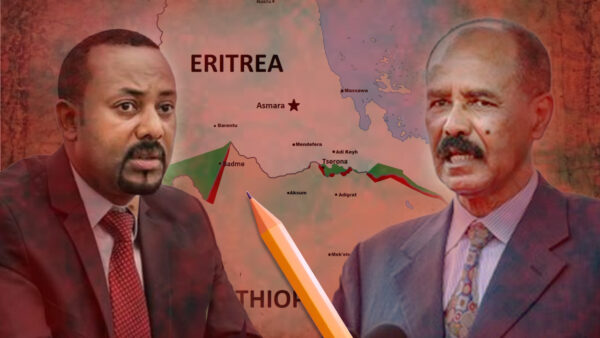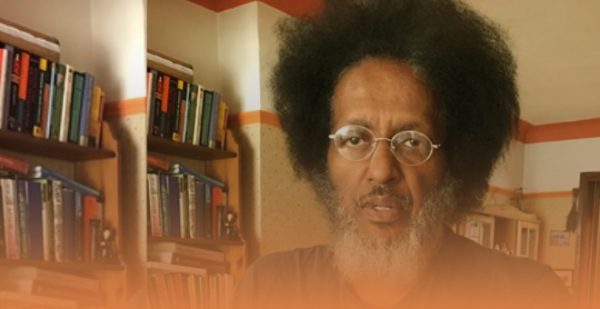Dictatorship: a Rational Choice –Until It is Not

“Rational choice theory”, proposed by economists to describe market economies, has been adopted in criminology, religion and, of course, political science. Essentially, the theory assumes that, prior to every decision, people make cost-benefit analysis because they are “self-interested, purposeful, maximizing being.” Of course, what I consider rational you will consider absurd and the sum total of each rational choice—the aggregate–is often surprising, even fascinating. That particular study in macroeconomics is called game theory which, thank God, has nothing to do with this article.
The alternative to rational choice theory is to believe that people are irrational (bigoted, fundamentalists, wrong-headed, emotional, sentimental) but that you, the observer, or some hero you idolize, are rational because you, with the help of your idol, were the only ones (or the few) to discern it. You could cite many examples to illustrate that people are not always rational—particularly if you work in marketing– but I think that subscribing to “rational choice theory” is less likely to make one cynical and bitter at the people—past and present. You know: the ones who look at the Eritrean predicament and say izi hzbi Hmaq iyu::
In politics, rational choice theory demystifies a problem by reducing it into a quantifiable, measurable series of data points. Rational choice doesn’t just explain why Eritreans are sticking with Isaias Afwerki right now but what conditions must be met for them to abandon him. It begins with researching the objective.
How do we research in politics? Well, if the population is small enough, you can just gather them all and ask questions. I once read that you can fit the entire population of the world, all seven billion plus of us, into Texas. What’s that? No, I have no idea if people want to voluntarily move to a state where they have runways and taxis for mosquitoes but you are not helping. Using that parallel, we Eritreans are so few that we could have a gigantic tent with nothing but tenkobet from end to end and we can assemble the entire people for a real waEla.
But then you would ruin it with your practicality questions. Yes, you? No, I am not taking engineering questions about tent assembly…. Yes, you, young man. Of course, elderly Eritreans can exercise their God-given right to introduce their speeches with eneheleka d’asi preambles and you can exercise your right to roll your eyes. Moving on… yes, you with the Paltalk t-shirt? No, it is not necessary to say segud, hade hade because everyone will have a megaphone. What? Who invited whom and who paid for it? Yes, I paid for it, and here’s the receipt. Yes, you, my Isaias-Afwerki t-shirt wearing sister. No, we will not be asking for IDs and we won’t have a bouncer asking people if hagerawi gubu’om amaliom. No, there is no sitting arrangement: everybody sits wherever they are comfortable. No, we are not having a moment of silence, we are not singing the national anthem, we are not decorating the damn tent, we are not electing a Secretariat. We are just sitting in peace. Yes, there will be smoking breaks… and please ask anyone with grey hair where the bathrooms are. It is a flat land, and it is broad daylight, but watch your step.
So, ok, it is not that practical. So we have to do it the traditional way: survey, sample size, focus groups. But those things have their rules and when you have a country that hasn’t had a census since, let me check my calendar, since 1949, there is a risk that you may not have a representative sample. You form friendships based on shared values; your immediate and extended family share your values; you talk to them and, voila, you have what statisticians call self-selecting opinion poll, or SLOP. You are sloppy.
But we have to start somewhere. First, we have to list a comprehensive people’s wish list (the what), then we prioritize it by asking why (why do they want what they say they want), then we whittle it down by asking “how” (can it be done.)
1. The What: The Objective
The following is an expression of what Eritrean activists in the Diaspora say is of urgent priority to present day Eritrea to help solve its ills:
Down!Down! Dictator!
The dictator must go!
The people want the regime gone!
Isaias Afwerki Must Resign!
Isaias Afwerki Must Be Taken To International Court!
Just Leave!
Return power to the people!
Free prisoners of conscience!
Free political prisoners!
Implement the constitution!
Rule of law!
Say No to the Ghedli Culture!
Return land to its rightful owners!
Purge “non-Eritreans” from Eritrean government!
End national conscription!
End slave labor!
End human trafficking!
Demarcation now!
Democracy now!
Justice now!
We Demand political pluralism!
We Demand Arabic to be a co-official language!
No Taxation Without Representation!
Federal System is the Answer!
Self determination up to and including secession!
Now, let’s assume that Eritreans in Eritrea were polled and they were voicing what really mattered to them right now. Would these be safe bets to add?
We need affordable food!
We need affordable housing!
We need jobs!
We need water!
We need electricity!
We need peace!
We want our children back!
Let’s now assume we are taking our survey at our tent. Everyone is given two flashlights—one flashes green, one flashes red. A man with a booming voice is reading out our demands. After each demand, we flash a green if we strongly agree; a red if we strongly disagree; and yellow if we are indifferent or we don’t think it is relevant right now. This will be a challenge because if you don’t care about an issue you won’t even have the energy to flash a light: but that’s why it is yellow: it is you saying, “this issue is so irrelevant, you better not make it an issue.”
That’s our vote. If we are doing it with a smaller sample, we do it using the Indian Voting Machine, which re-answered the question the Greeks had already answered: you don’t need to be literate to vote. You can use colored pebbles.
Who votes is not as important as who counts the vote, said some colossal thief, probably Stalin. So we need a Secretariat: but we already have it in the tent: it is our religious leaders. For our focus group, the Secretariat is the computer itself, which will be audited just in case.
Our objective now is to politely eliminate all the statements that were overwhelmingly red (strong opposition) or yellow (strong indifference) and net out the green. Those who make a living with political messaging say that phrasing matters a lot. A person who is completely turned off by “the dictator must go” might be amenable to “the president must resign.” Of course, on the flip side, a person may be totally disgusted that somebody who has never been elected by the people is being addressed as “president.” That’s why politicians conduct polls to determine which one generates more support.
2. The Why: The Moral Cause
Now, that’s a long list so we have to ask the next question: why are we calling for whatever it is we are calling for? Some are, of course, self-explanatory (“we need affordable food.”) And some will be answered with “because it is morally right AND urgent” (“release political prisoners.”) Others are things we will haggle over: persuade one another why they are supremely important for Eritrea. Remember, if you believe in the “rational choice theory”, you accept as natural when people advance their self interest. When you call somebody “self-interested”, “selfish”, you may think that you are trying to shame him into “seeing the light”, but all you are doing is complimenting him for being rational; a favor he returns by recognizing your “self-interested” motive in being a Diaspora Eritrean. All your activism is driven by self-interest: not what our friends in hgdef think (“they are all in the payroll of Weyane”), but because it makes you feel good to think, to know, that you are doing whatever you can to alleviate the pain of your people.
3. The How: Strategies and Tactics
We have agreed on the “what”, we have asked the “why”, now comes the “how.” Of course, I am cheating because it is not sequential. For example, a person may not flash green for “the dictator must go” unless he or she gets assurances of HOW that will happen. But that, I think, is where we have to insist on sequencing: let’s first agree on the objective, then we will decide on the strategy. And, if we don’t agree on the strategy, the objective will be modified or dropped. This happens to us in real life all the time: objective: I want a new car. how: I will save money, I will join an uqub, I will borrow money, I will rob a bank, I will carjack, I will sell my guitar. We may end up settling for a used car, or give up on it.
In politics, the first “how” is to pool resources, also known as to organize. You can’t do anything–you can’t strategize, you can’t exploit tactics, unless you organize and this is something our people know from experience (ELM, ELF, EPLF.) It is the most visible sign of our failure and, without it, perfecting the what (knowing, agreeing on, and defining the objective) and having all the answers for the why (the moral, legal imperative) is simply inadequate. Our ability to organize is the biggest threat to the PFDJ which is why the entirety of its counter-attack is focused not on disagreeing with our objective or its moral imperative (some of which it reluctantly, grudging, agrees with in principle but says it is a matter of wrong timing; or, in the case of the prisoners of conscience, it tells us that it actually has the moral high ground because it is hiding them from a vigilante group who would kill them) but they attack any sign of our organization. There is nothing original about this, of course, that is exactly what Derg did to EPLF: to turn its strength, organization, into a weakness, by labeling it a tool of Arabs. We, on the other hand, are tools of “Weyane”, “CIA”, or whoever else is the bogeyman of the week.
I do not necessarily see coerced “unity” of the opposition as important or even necessary. We have learned from the experience of the last 12 years that coerced unity—something put together under our pressure—collapses for the flimsiest causes. What I think is important is that we advocate our best interpretation of the people’s demands (from the “what” list), we find appealing language to describe them and categorize them, link the why it is happening to the misrule of the Eritrean regime, and work obsessively to organize Eritreans in the Diaspora and link them to Eritreans in Eritrea. That is: 3 smaller, well-organized groups are better than 1 large dysfunctional organization. Most importantly: if we assume that people are intelligent and make rational decisions—we will work hard to show them that supporting us is, in the longer run, the rational decision.
Sal Younis
06.18.2013




Awate Forum